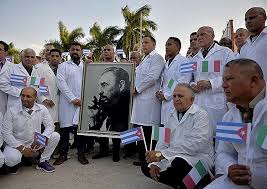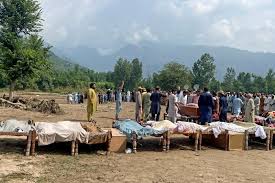The United States has announced visa sanctions against several officials from Brazil, Africa, and the Caribbean over their roles in Cuba’s international medical missions, which Washington now labels as a form of forced labor.
The U.S. government said the sanctions are part of its effort to combat what it calls Cuba’s “coercive labor export scheme”, where doctors are sent abroad under restrictive conditions while the Cuban government takes most of their earnings.
The sanctions target:
Two Brazilian health officials: Mozart Julio Tabosa Sales and Alberto Kleiman, who were involved in Brazil’s Mais Médicos (“More Doctors”) program.
Former officials from the Pan American Health Organization (PAHO).
Undisclosed African officials, and at least one Caribbean nation, Grenada.
Family members of those sanctioned were also affected.
The U.S. also imposed earlier sanctions on Cuban President Miguel Díaz-Canel and other top Cuban ministers for what it described as human rights abuses and exploitation of workers.
The Mais Médicos program was launched by Brazil in 2013 to provide healthcare in remote or underserved areas. Cuba supplied thousands of doctors through the program, and in return, Brazil paid the Cuban government large sums. However, much of this money did not reach the doctors directly.
The U.S. claims this is a “human trafficking model”, where Cuba sends medical professionals abroad, keeps the majority of the revenue, and limits the doctors’ freedoms.
“These missions enrich the Cuban regime while depriving its citizens of essential medical care,” said U.S. Secretary of State Marco Rubio.
Cuba’s government condemned the sanctions, saying the U.S. is using human rights as a political excuse to harm the Cuban economy and damage healthcare support to developing nations.
“Rubio’s priorities speak volumes—funding genocide, attacking Cuba, and trying to stop health care for the poor,” tweeted Johana Tablada, Cuba’s deputy director of U.S. affairs.
Brazil’s current Health Minister Alexandre Padilha also criticized Washington, calling the accusations unfounded and saying Brazil would not back down under pressure.
“We will not bow to these unreasonable attacks,” he said.
Cuba has been sending medical professionals abroad since the 1960s. After the 1959 revolution, the communist government promoted medical aid as a diplomatic tool and source of income.
Over the past 50 years, between 135,000 and 400,000 Cuban doctors have worked in over 60 countries, including South Africa, Venezuela, Brazil, and Qatar.
In the early 2000s, Cuba and Venezuela launched the “Oil for Doctors” program—Cuba sent doctors, while Venezuela sold oil at reduced prices.
These programs brought badly needed revenue to Cuba, especially during economic crises and periods of strict U.S. sanctions, which have been in place for decades.
President Donald Trump, now in his second term, has reinstated a hardline policy against Cuba. His administration accuses Cuba of using doctor missions as a form of modern slavery, and of relying on them to generate foreign currency.
Critics, however, say the new sanctions are politically motivated and aim to pressure Cuba during a time when its economy is already struggling due to COVID-19 impacts, tourism losses, and medicine shortages.
In 2024, Cuba said it couldn’t afford $300 million to produce essential medicines due to sanctions and lack of raw materials.
This move adds to growing tensions between the U.S. and several countries in Latin America and Africa, especially Brazil, where the U.S. recently imposed sanctions related to an ongoing coup trial involving former President Jair Bolsonaro.
There’s also concern that Washington’s targeting of health officials could set a global precedent, affecting international cooperation in healthcare delivery.
Despite sanctions, Cuba insists its medical diplomacy will continue:
“Medical cooperation will not stop,” said Havana officials.



